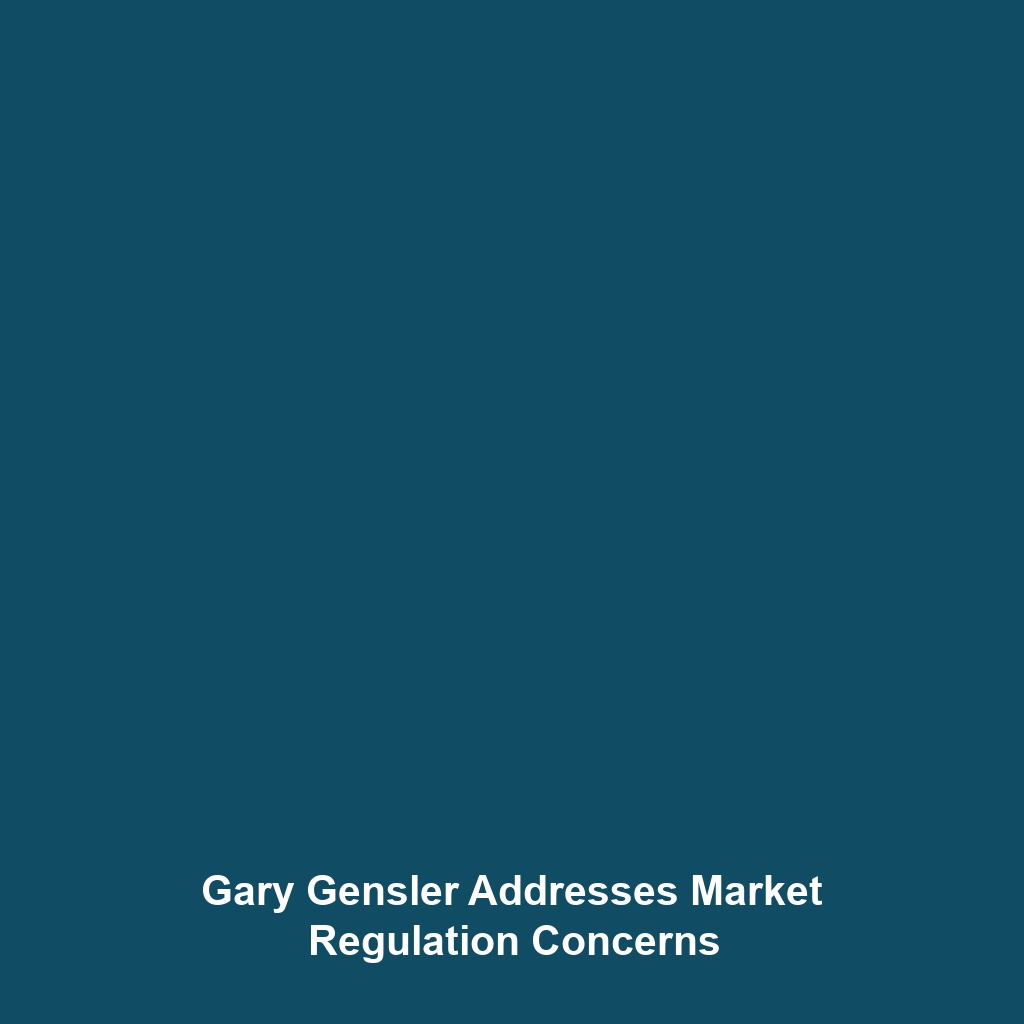Your cart is currently empty!
Tag: transparency

Ken Griffin Open to Selling Stake in Citadel
Ken Griffin Open to Selling Stake in Citadel
Ken Griffin Open to Selling Stake in Citadel
Billionaire investor Ken Griffin has signaled a willingness to sell a minority stake in his hedge fund firm, Citadel, which manages approximately $65 billion in assets. This development marks the first time Griffin has publicly considered such a move, raising questions about the future direction of the firm and potential implications for its investors.
Griffin’s Strategy Shift
Ken Griffin’s announcement comes as the hedge fund industry faces increased scrutiny and regulatory challenges. By considering the sale of a minority stake, Griffin is potentially looking to bolster Citadel’s capital base, enhance its operational capabilities, and invest in technological advancements to stay competitive in a rapidly changing market.
“I think it’s important for us to ensure that we have all the resources we need to compete effectively,” Griffin stated during a recent investor call. He emphasized that any decision to sell a stake would be based on maintaining Citadel’s leadership position in the industry.
Market Conditions and Competition
The hedge fund landscape has become increasingly competitive, with firms like Millennium Management and AQR Capital Management vying for market share. A minority stake sale could provide Citadel with the necessary resources to enhance its trading strategies, technology, and human capital. Analysts suggest that Griffin’s openness to such a move reflects broader trends in the investment community where firms seek to diversify ownership structures and align interests with strategic partners.
“In the current climate, collaboration and partnerships are becoming more critical,” noted wealth management expert Adam Geller. “Selling a stake allows firms like Citadel to not only raise funds but to benefit from the strategic insights and networks that new stakeholders may bring.”
Implications for Citadel’s Investors
For existing investors, Griffin’s potential decision raises questions about the firm’s governance and future direction. Historically, Citadel has operated as a privately held firm, with Griffin maintaining significant control over its operations. A shift to a more publicly traded model might alter governance structures and investor relationships.
Some analysts believe that bringing in outside investors could lead to enhanced transparency, while others caution that it may dilute existing investors’ influence. “The dynamics of investment can change significantly with new stakeholders involved,” said financial analyst Laura Bennett. “Investors will need to consider how this impacts Citadel’s strategic decisions.”
Griffin’s Vision for the Future
Billionaire Ken Griffin has long advocated for innovation in the finance sector. He founded Citadel in 1990 with a vision to create one of the most sophisticated trading firms in the world. He attributes his firm’s success to a relentless focus on technology and data analytics.
As Griffin weighs the prospect of selling a stake in Citadel, he remains committed to advancing the firm’s technological edge, a move he views as integral to sustaining competitive advantages in a volatile economic environment. “We are at a crossroads, where technology will dictate the parameters of success in finance,” he commented.
Potential Buyers and Market Response
If Griffin moves ahead with plans to sell a minority stake, several institutional investors and private equity firms could emerge as potential buyers. Large investment firms have been increasingly interested in acquiring stakes in high-performing hedge funds as they look for diversified returns.
Market response to Griffin’s announcement has been cautiously optimistic, with financial analysts observing slight increases in Citadel’s estimated valuation. Investors seem to view Griffin’s openness as a sign of strategic repositioning rather than a sign of distress within the firm.
Conclusion
Ken Griffin’s indication of a willingness to sell a minority stake in Citadel represents a significant shift in strategy for one of the world’s leading hedge funds. As market dynamics continue to evolve, Griffin’s decision may open new avenues for growth and innovation while reshaping the governance of Citadel.
Future developments will be closely watched by investors, analysts, and competitors alike, as the implications of such a move could have far-reaching effects on the hedge fund landscape.
For ongoing coverage and expert analysis of developments in the hedge fund industry, consider reading additional reports from Bloomberg, Financial Times, and MarketWatch.

Gary Gensler Addresses Market Regulation Concerns
Gary Gensler Addresses Market Regulation Concerns
Gary Gensler Addresses Market Regulation Concerns
In a recent address, Securities and Exchange Commission (SEC) Chairman Gary Gensler tackled ongoing concerns regarding regulatory measures in the ever-evolving landscape of cryptocurrency and stock markets. Gensler emphasized the necessity for increased transparency and robust regulations to protect investors and ensure fair market practices.
Cryptocurrency Under Scrutiny
Cryptocurrencies have gained significant traction over the past few years, prompting regulators to closely examine their implications on financial markets. Gensler highlighted that the SEC is focused on fostering an environment that ensures investor protection. He pointed out that many cryptocurrency platforms operate without the necessary oversight, which can lead to fraud and market manipulation.
“The key is transparency,” Gensler stated. “We are working to ensure that any cryptocurrency trading platforms adhere to the same standards as traditional exchanges.” In light of recent events in the crypto space, such as the collapse of high-profile exchanges, his remarks resonate with the growing call for regulatory clarity.
Regulatory Measures for Stock Markets
Beyond cryptocurrency, Gensler offered insights into the ongoing regulatory framework surrounding stock markets. He underscored that enhancing market transparency is critical to preventing unethical practices such as insider trading and market manipulation.
“Our markets must serve the public interest,” Gensler remarked, advocating for rigorous enforcement of existing regulations. He specifically mentioned the need for improved reporting standards and more accessible information for investors, which could diminish asymmetrical information between market participants.
The Role of Technology in Regulation
An important aspect of Gensler’s address was the integration of technology into the regulatory process. He noted that technological advancements can help the SEC detect irregularities in trading more efficiently and can ensure compliance with regulations.
“We must harness technology to oversee these rapidly changing markets,” he stated, referring to the SEC’s efforts to implement advanced analytics to monitor trading patterns. This shift towards technology-driven regulation aims not only to mitigate risks but also enhance overall market integrity.
Seeking Input from Stakeholders
Gensler also highlighted the importance of dialogue with various stakeholders, including industry players and the public, in shaping the future of market regulation. He called for comments and discussions on proposed regulatory frameworks, indicating that engagement is vital to create comprehensive and effective regulations.
“We want to hear from all corners—whether you are a small investor, a major corporation, or an innovative startup,” he emphasized. This approach reflects a recognition of the diverse perspectives that influence the dynamic financial landscape.
Expert Opinions and Industry Reactions
Industry experts largely support Gensler’s call for increased transparency and robust regulation. Bradley J. Bondi, a former SEC official and currently a partner at a Washington D.C. law firm, noted, “The push for clarity in crypto regulations is not just necessary—it’s overdue. The market is maturing, and so must the regulatory framework.”
Additionally, Kristin N. Novoa, a financial analyst, spoke on the necessity of balancing innovation with regulation, stating, “While we need to protect investors, we also have to foster an environment that encourages tech-driven financial solutions.” This sentiment echoes a common theme among market analysts who argue that overly restrictive regulations could stifle innovation.
Conclusion: A Call for Comprehensive Regulation
Chairman Gensler’s address highlighted critical concerns regarding the regulation of both the cryptocurrency market and traditional stocks. By advocating for increased transparency and the use of technology in regulatory practices, he aims to enhance investor protection and market integrity.
Looking ahead, the SEC’s actions and proposed regulations will be closely monitored by industry participants and investors alike. As the regulatory environment continues to evolve, Gensler’s leadership will be pivotal in navigating the complexities of modern financial markets.
For further updates on market regulations, stay informed through reliable news platforms and the SEC’s official communications.